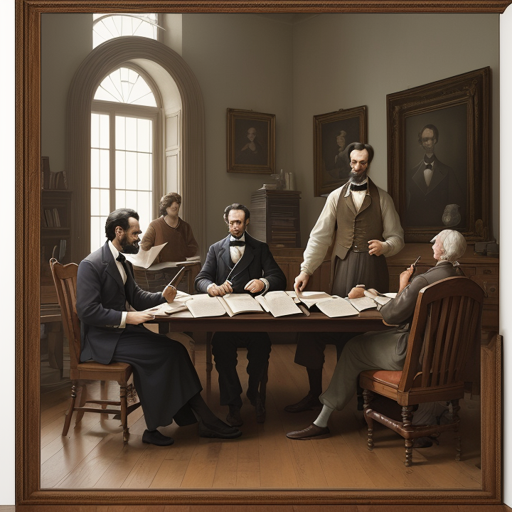Are you fascinated by the power of words and rhetoric? Do you want to elevate your informal expressions to a level where they echo the grandeur of Abraham Lincoln’s speeches? If so, you’ve come to the right place! In this guide, we will walk you through transforming everyday phrases into eloquently styled prose that would make even the Great Emancipator proud.
Step 1: Setting Up the Environment
Before we begin the transformation, we need to set up our environment. For this task, we will use a magnificent tool called the Transformers Library from Hugging Face. The library includes pre-trained models that can help us achieve our goal. To get started, run the following code:
from transformers import AutoTokenizer, AutoModelForCausalLM
tokenizer = AutoTokenizer.from_pretrained("BigSalmonInformalToFormalLincoln28")
model = AutoModelForCausalLM.from_pretrained("BigSalmonInformalToFormalLincoln28")Think of this step as preparing a clean canvas and picking the right brushes before you begin your masterpiece.
Step 2: Formulating Your Prompts
Now, let’s take some informal sentences and formulate them into prompts for our model. Below are several examples to illustrate this transformation:
- Informal English: I am very ready to do that just that.
- Lincoln-Style: You can assure yourself of my readiness to work toward this end.
- Informal English: Space is huge and needs to be explored.
- Lincoln-Style: Space awaits traversal, a new world whose boundaries are endless.
- Informal English: Corn fields are all across Illinois, visible once you leave Chicago.
- Lincoln-Style: Corn fields encompass the landscape of Illinois, manifesting themselves visibly as one ventures beyond Chicago.
This process is akin to polishing raw gems into sparkling diamonds; transforming the mundane into something majestic.
Step 3: Running Your Prompts
Once you’ve formulated your prompts, it’s time to run them through the model. This involves loading your text, encoding it, and then generating the transformed output.
input_text = "I am very ready to do that just that."
inputs = tokenizer(input_text, return_tensors="pt")
# Generate Lincoln-style text
outputs = model.generate(inputs["input_ids"], max_length=50)
result = tokenizer.decode(outputs[0], skip_special_tokens=True)
print(result)Here, we’re taking your informal expression and running it through our linguistic machine, creating a final product that’s breathtaking!
Troubleshooting Tips
Sometimes things may not go as planned. Here are a few troubleshooting steps:
- Model Errors: If you encounter an error while loading the model, check the model name for correctness and ensure you have a stable internet connection.
- Runtime Issues: Running the model may require substantial memory and processing power. Try running it on a more powerful machine or consider using cloud computing resources.
- Output Quality: If the output isn’t quite what you expected, experiment with different informal prompts to see how they affect the results.
For more insights, updates, or to collaborate on AI development projects, stay connected with fxis.ai.
Conclusion
By following this guide, you can transform everyday language into the captivating style of one of America’s most revered figures. Remember, each phrase you craft can evoke emotion and inspire, much like the speech of a true orator. So go forth and let your words shine brilliantly!
At fxis.ai, we believe that such advancements are crucial for the future of AI, as they enable more comprehensive and effective solutions. Our team is continually exploring new methodologies to push the envelope in artificial intelligence, ensuring that our clients benefit from the latest technological innovations.

